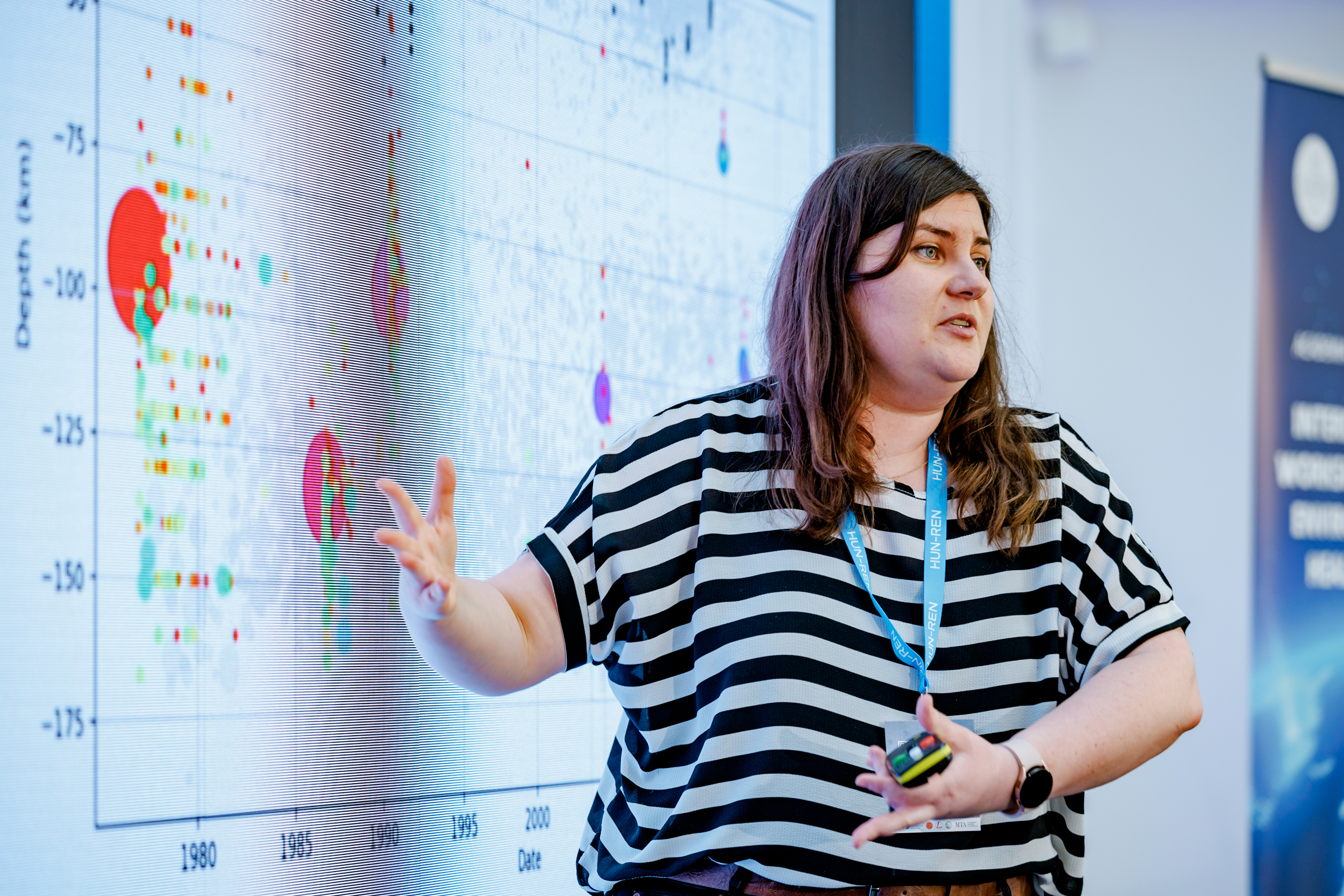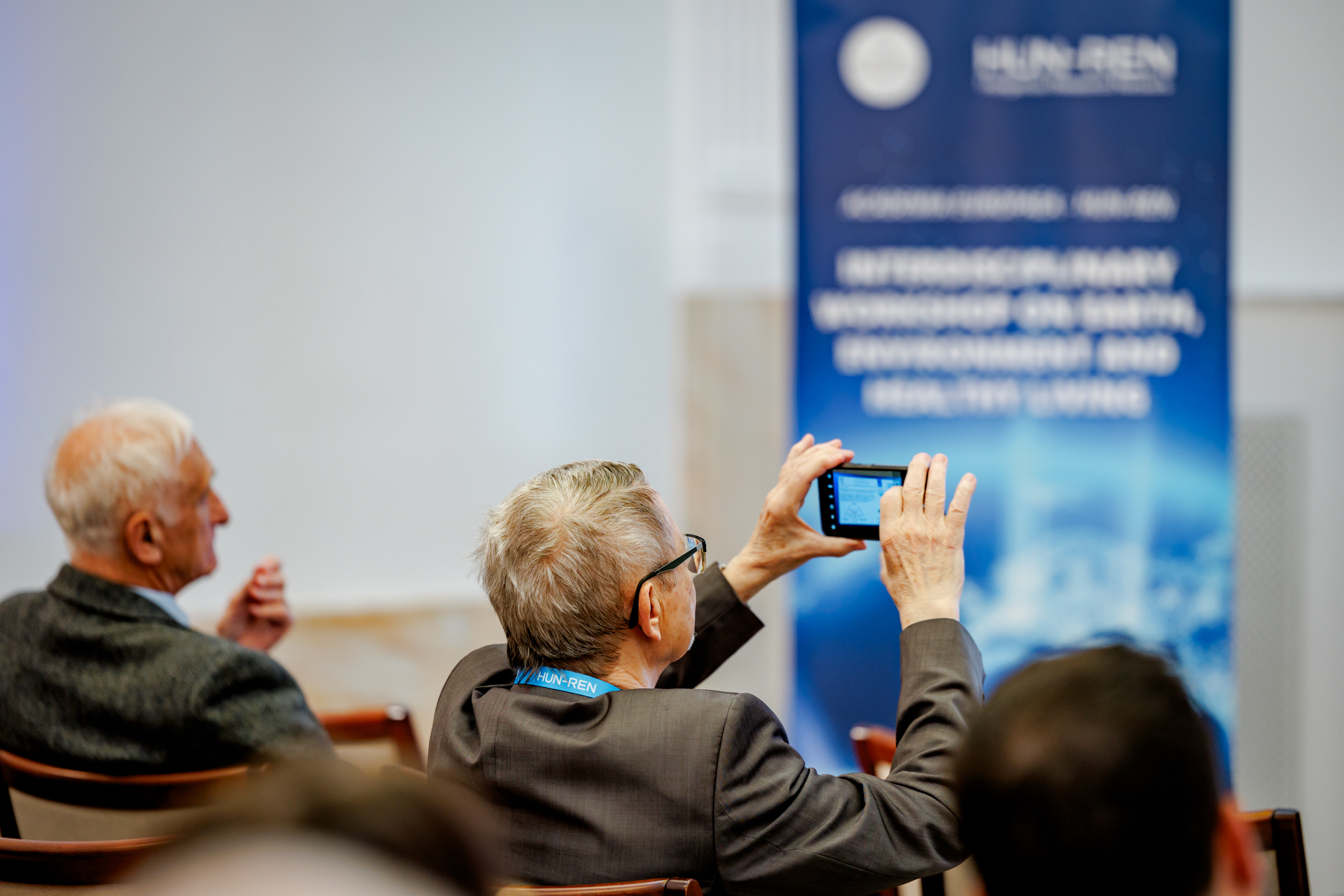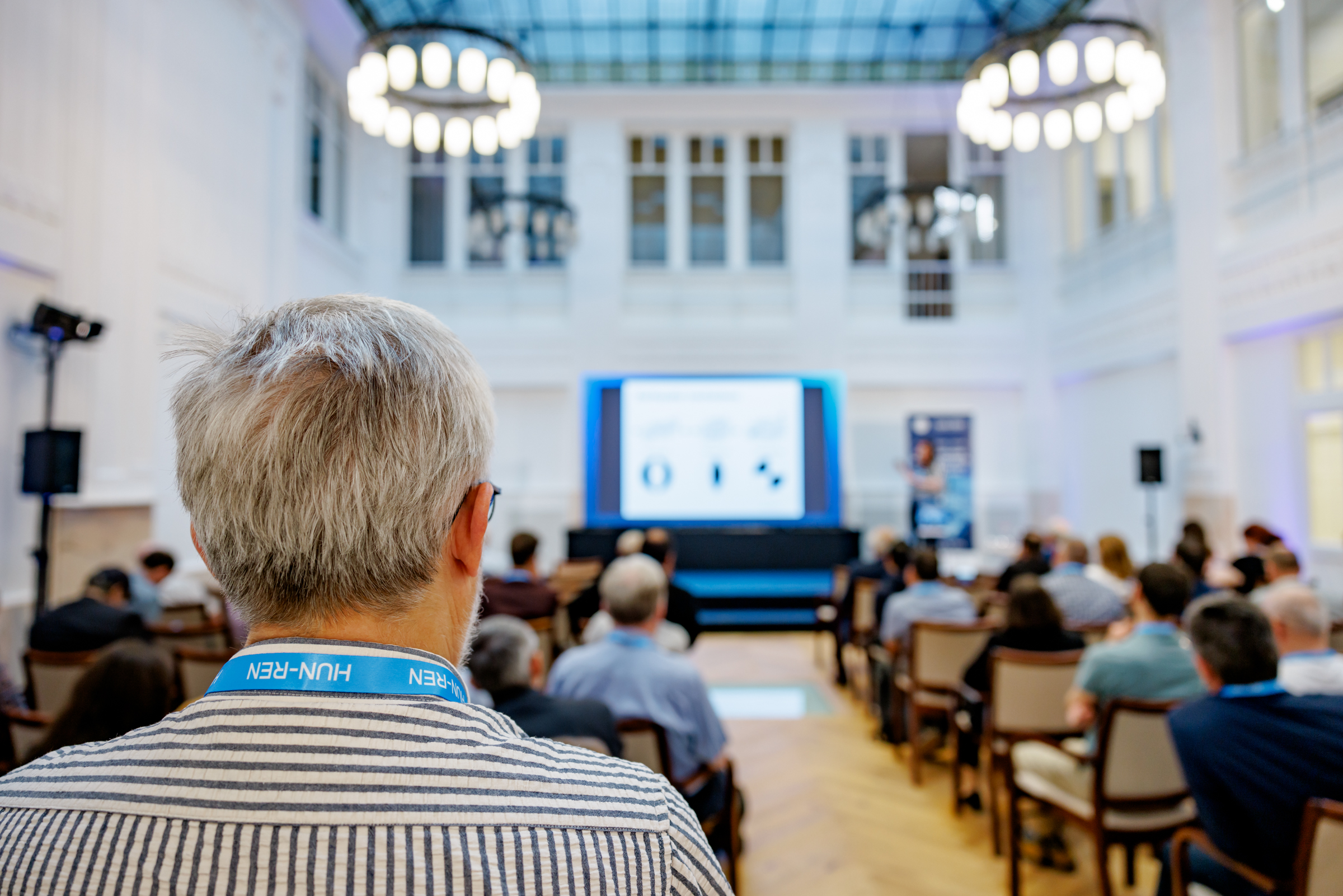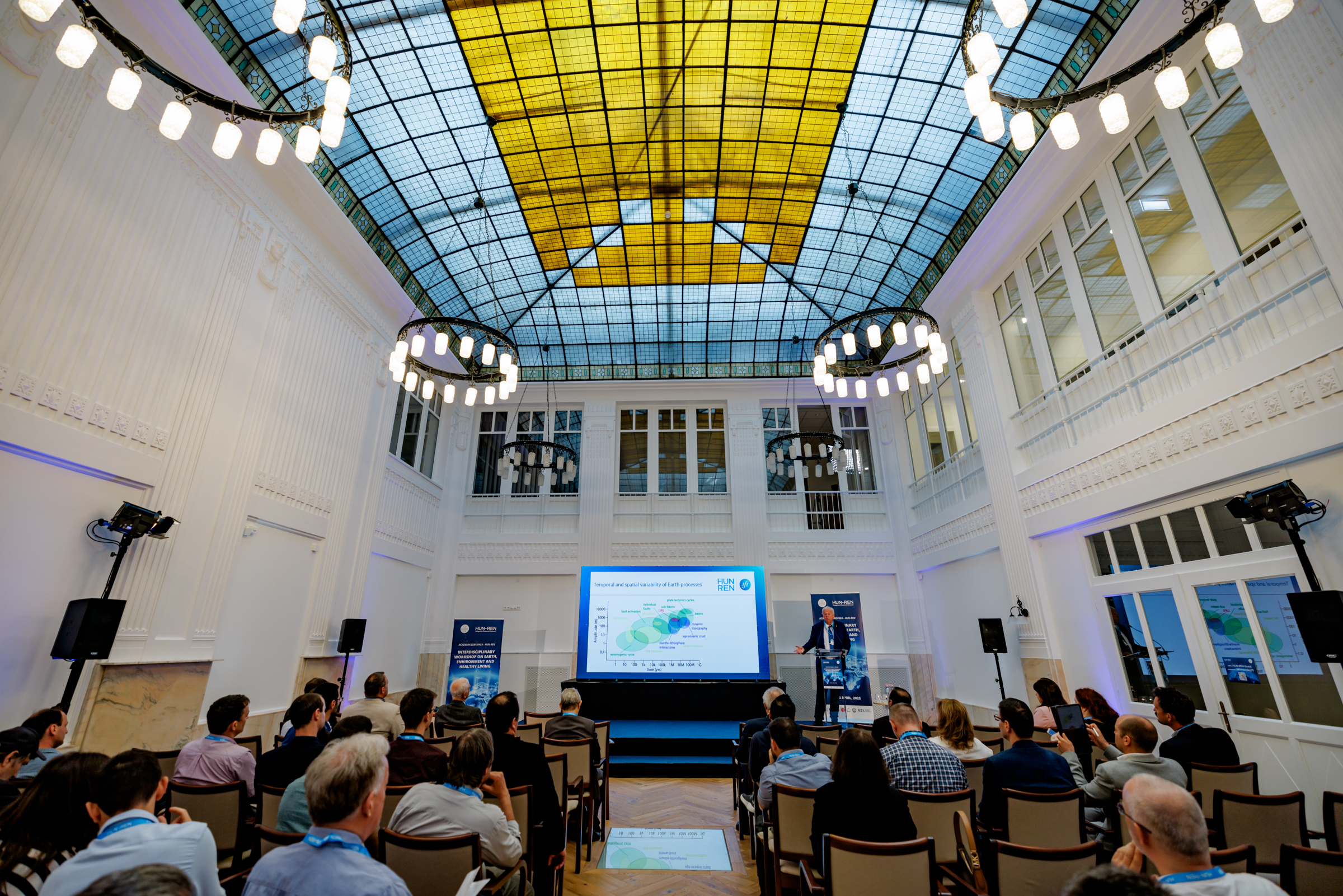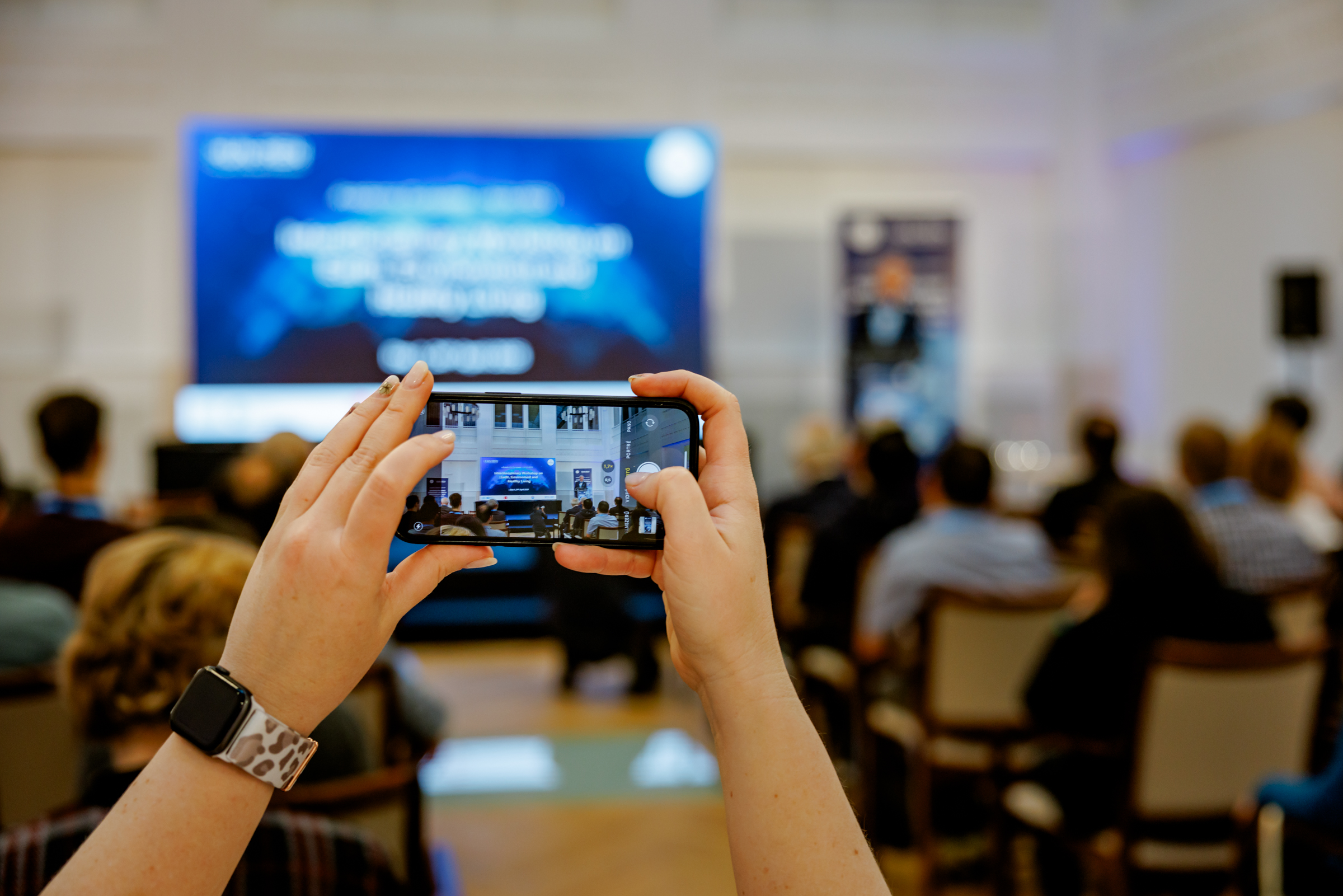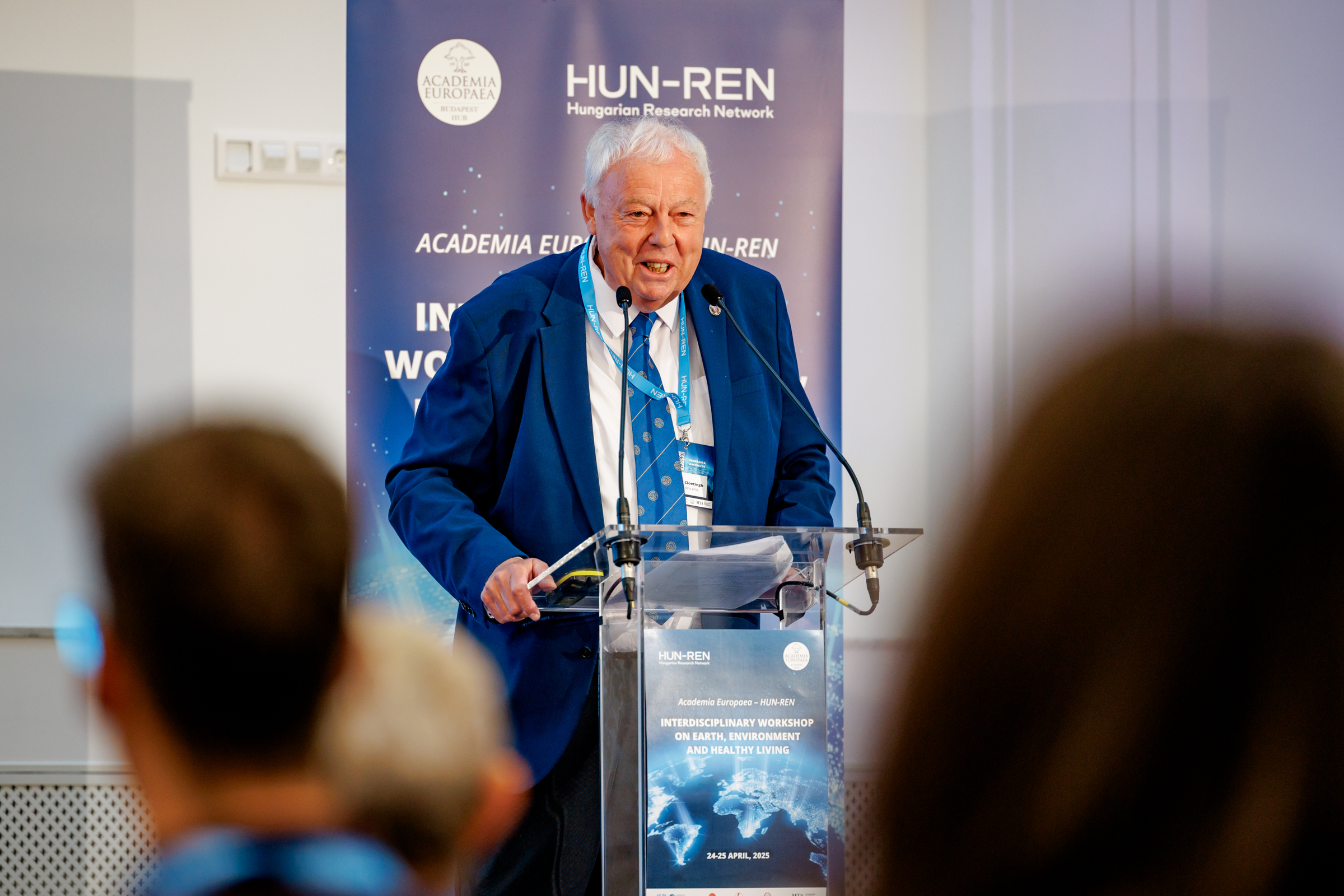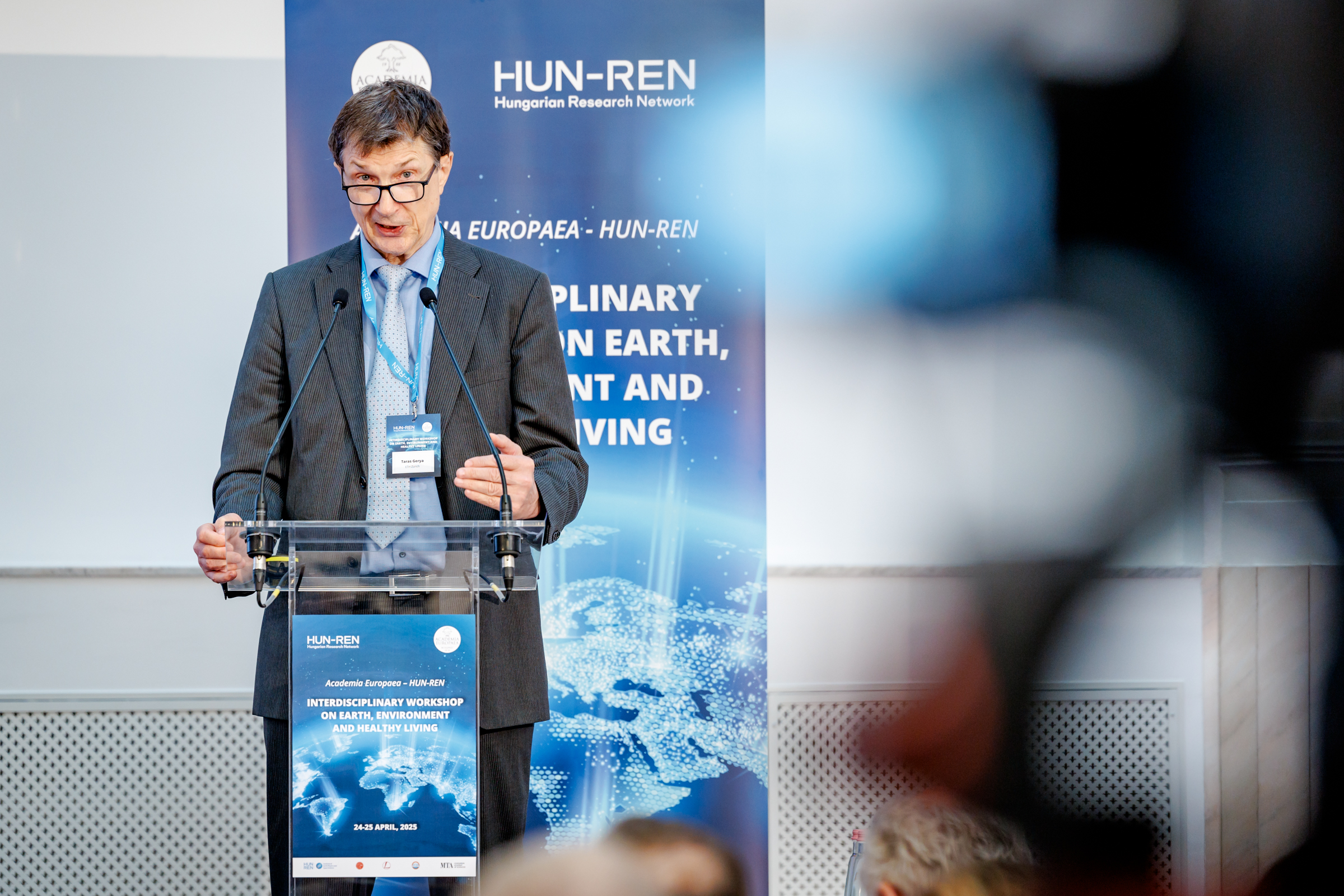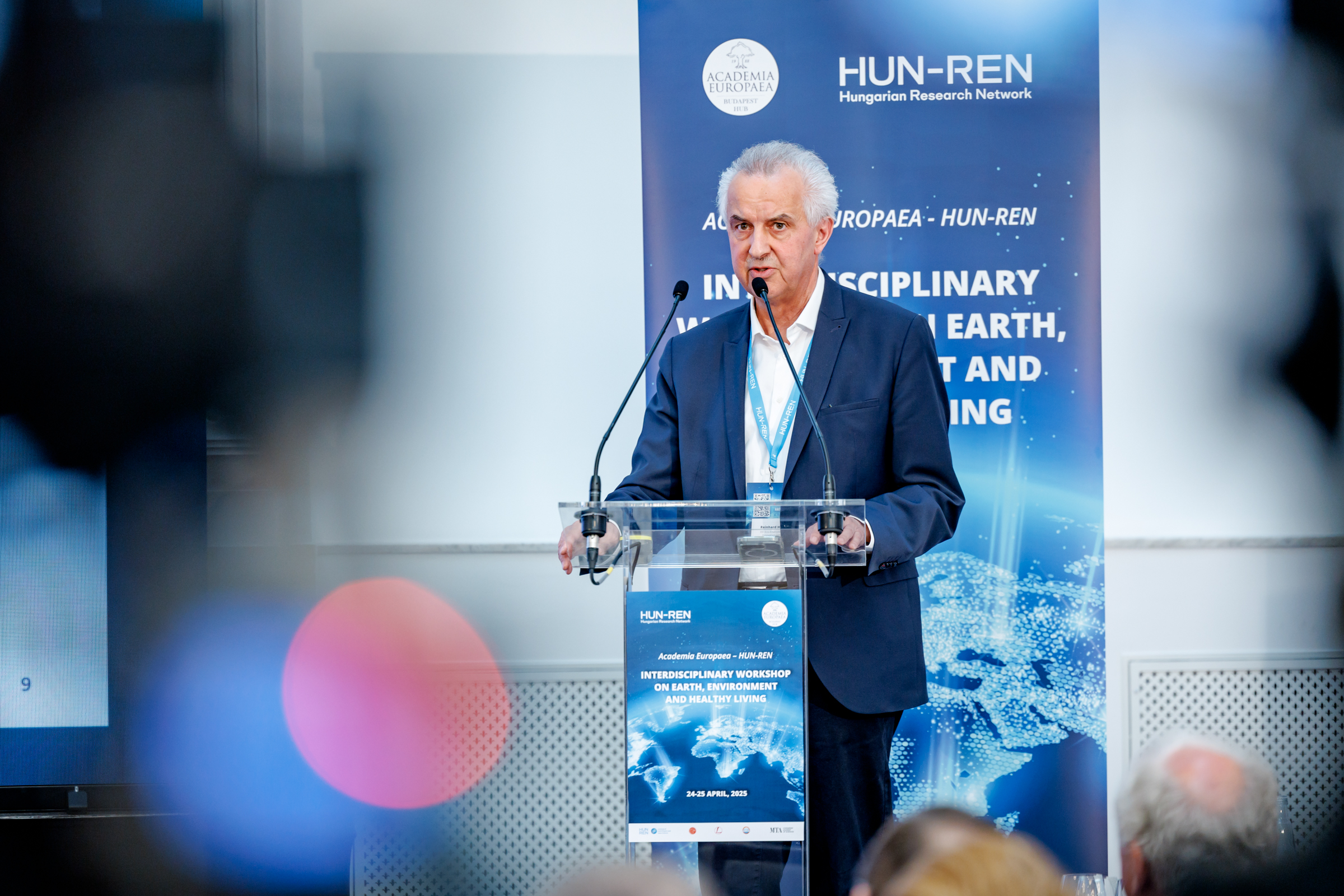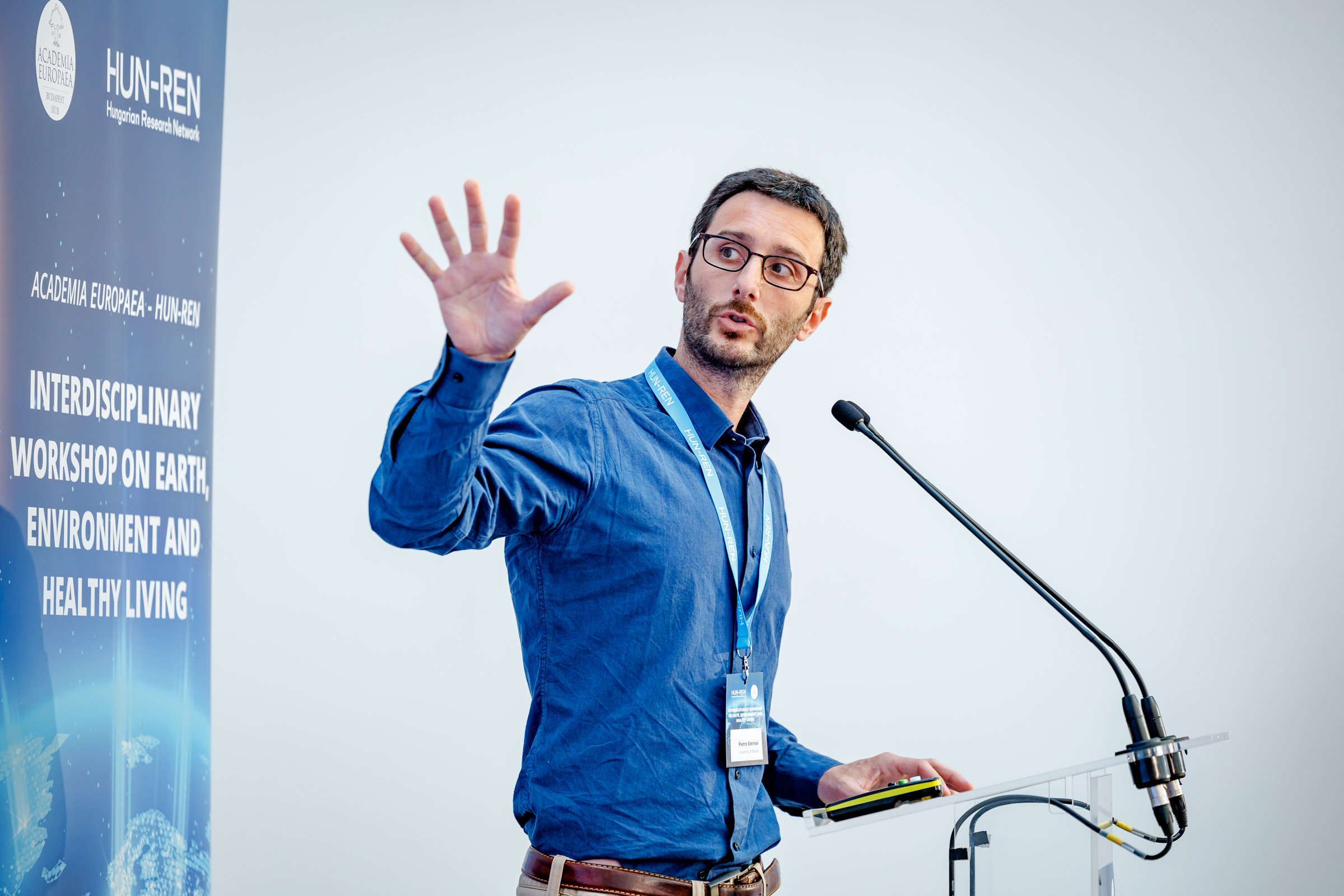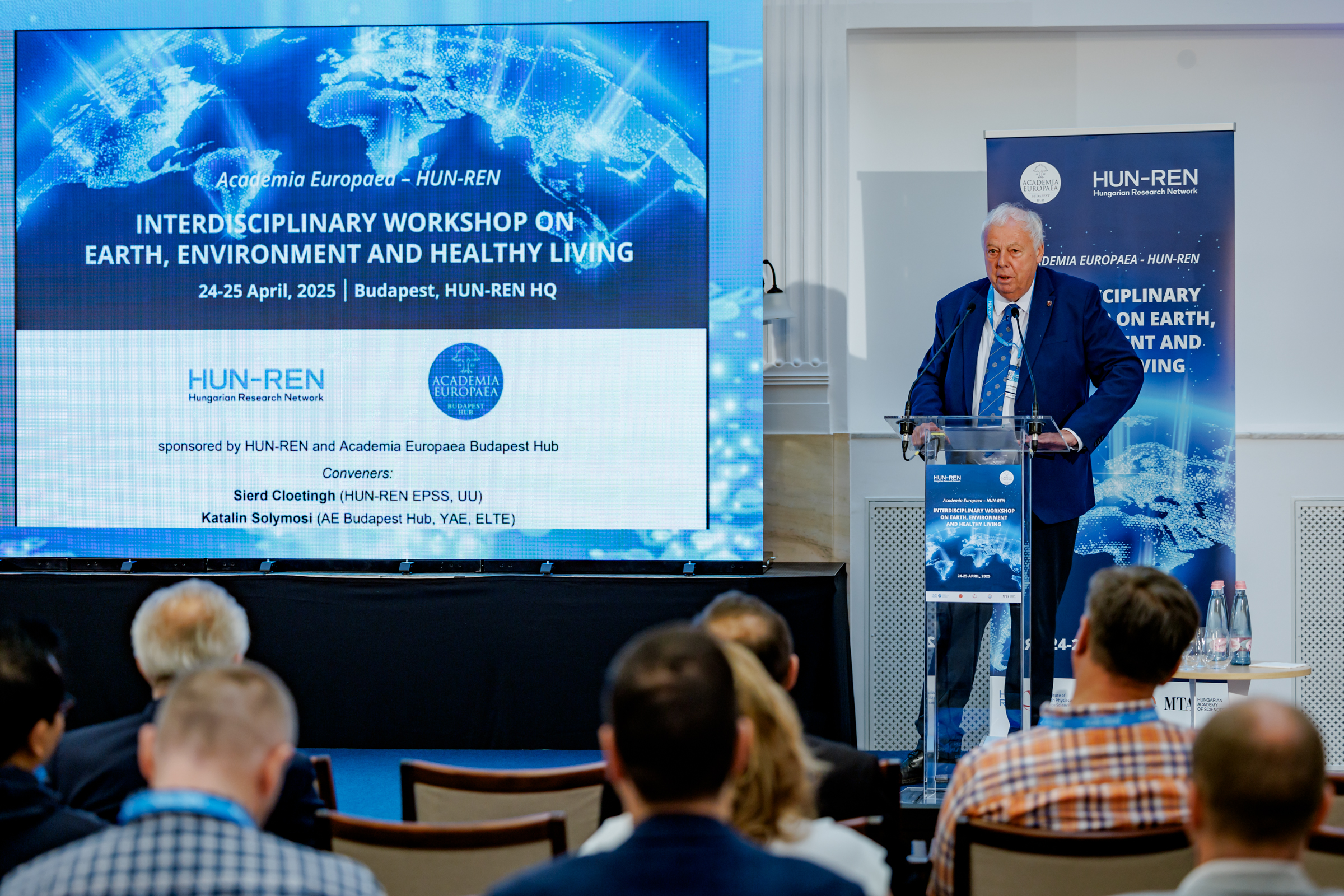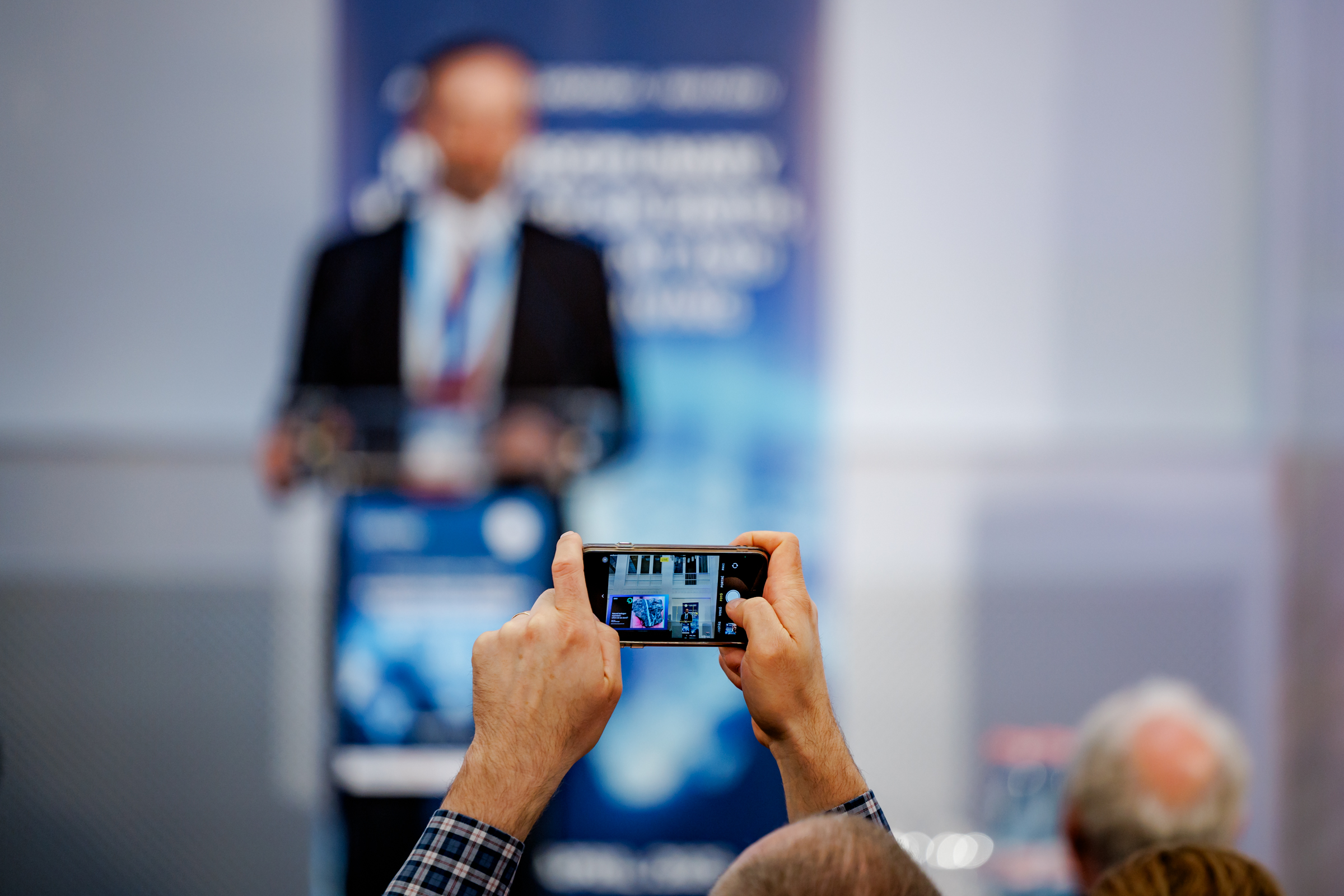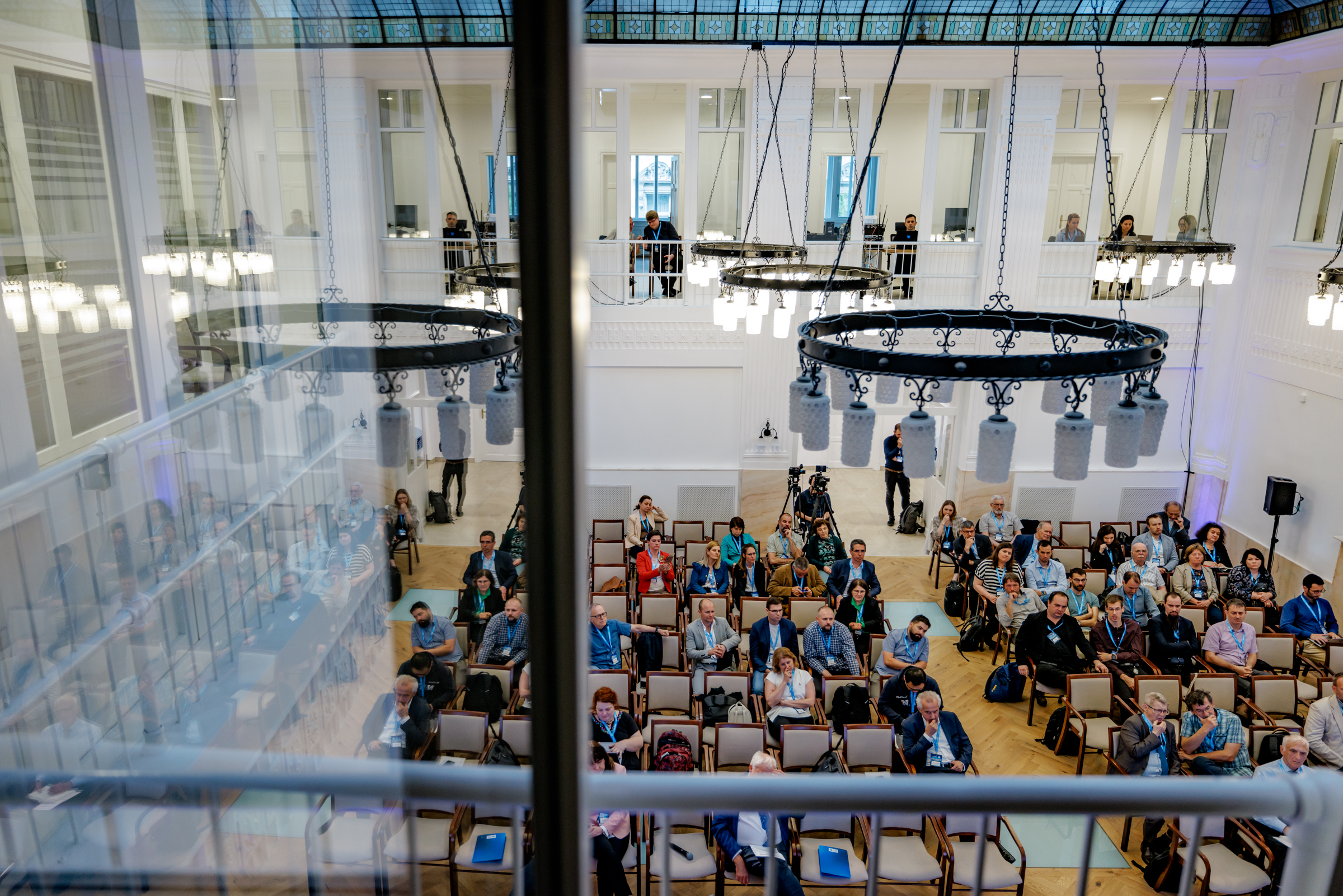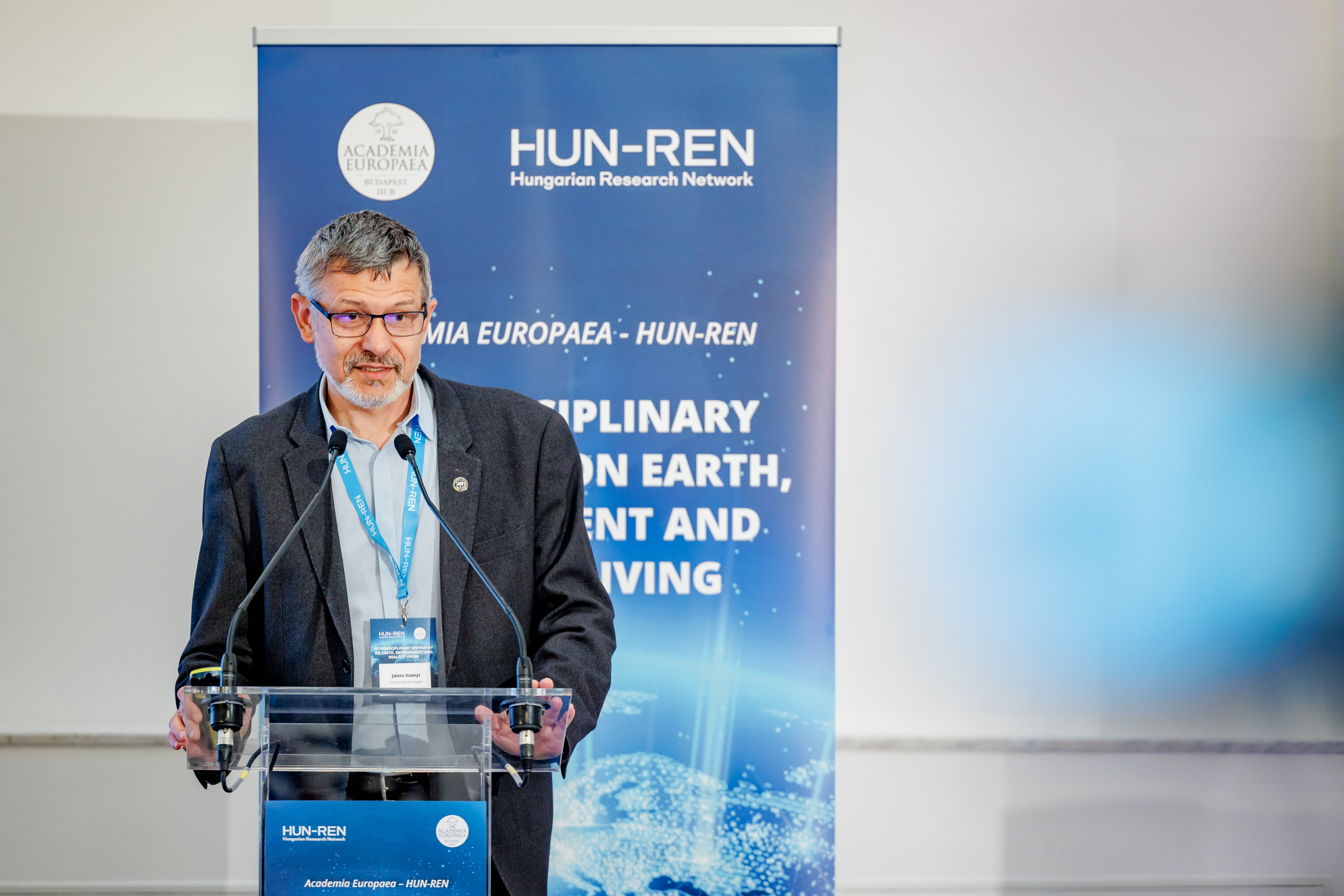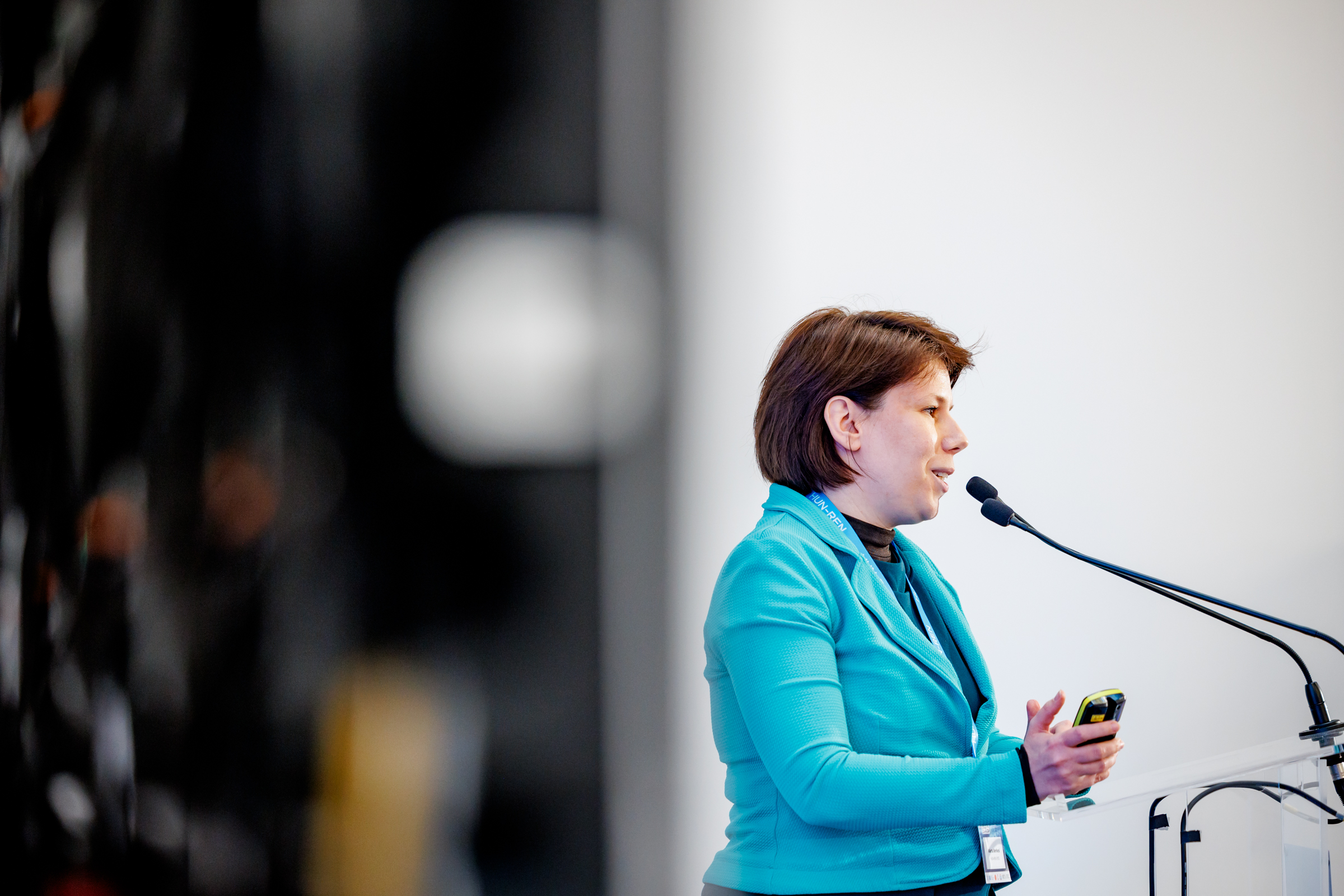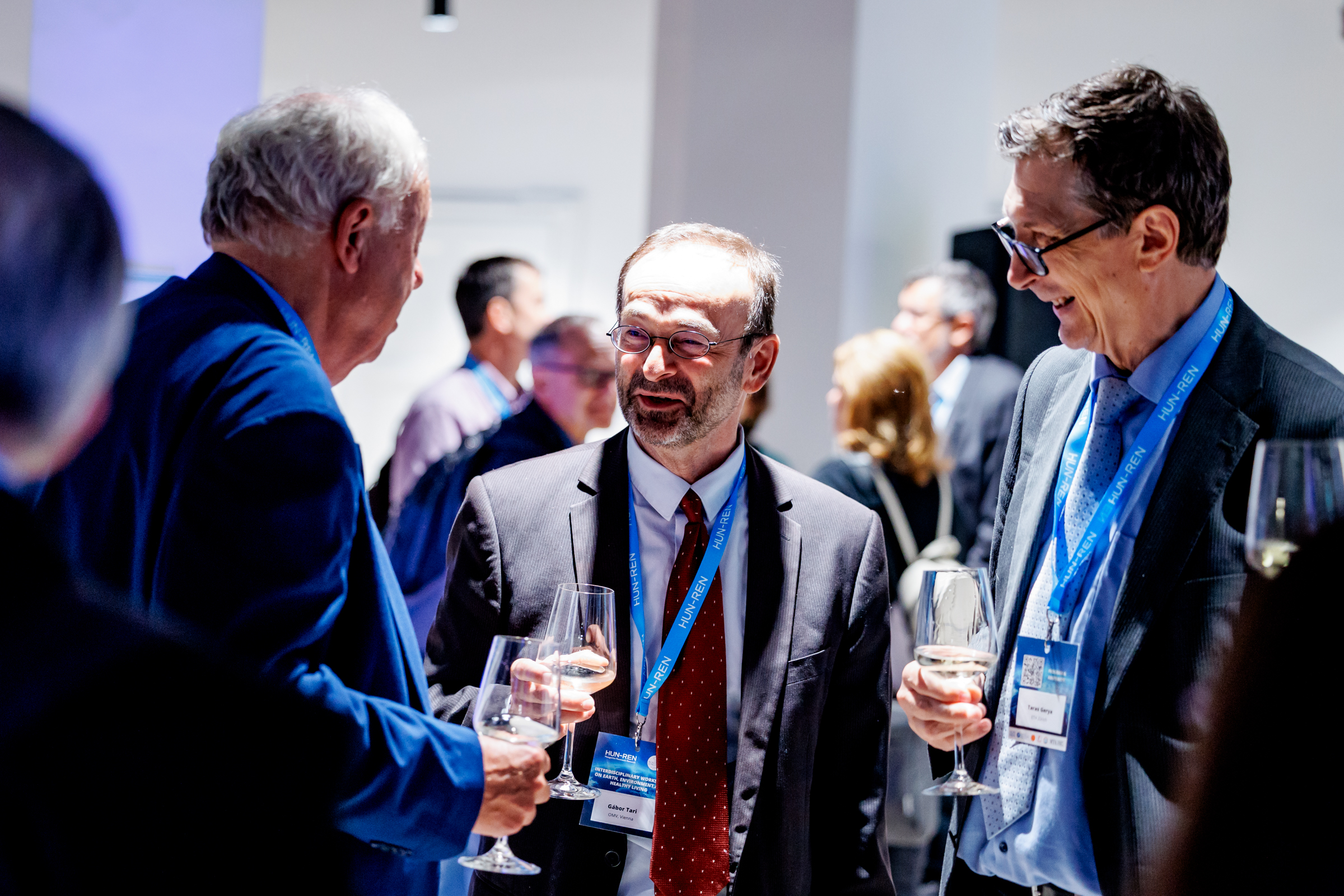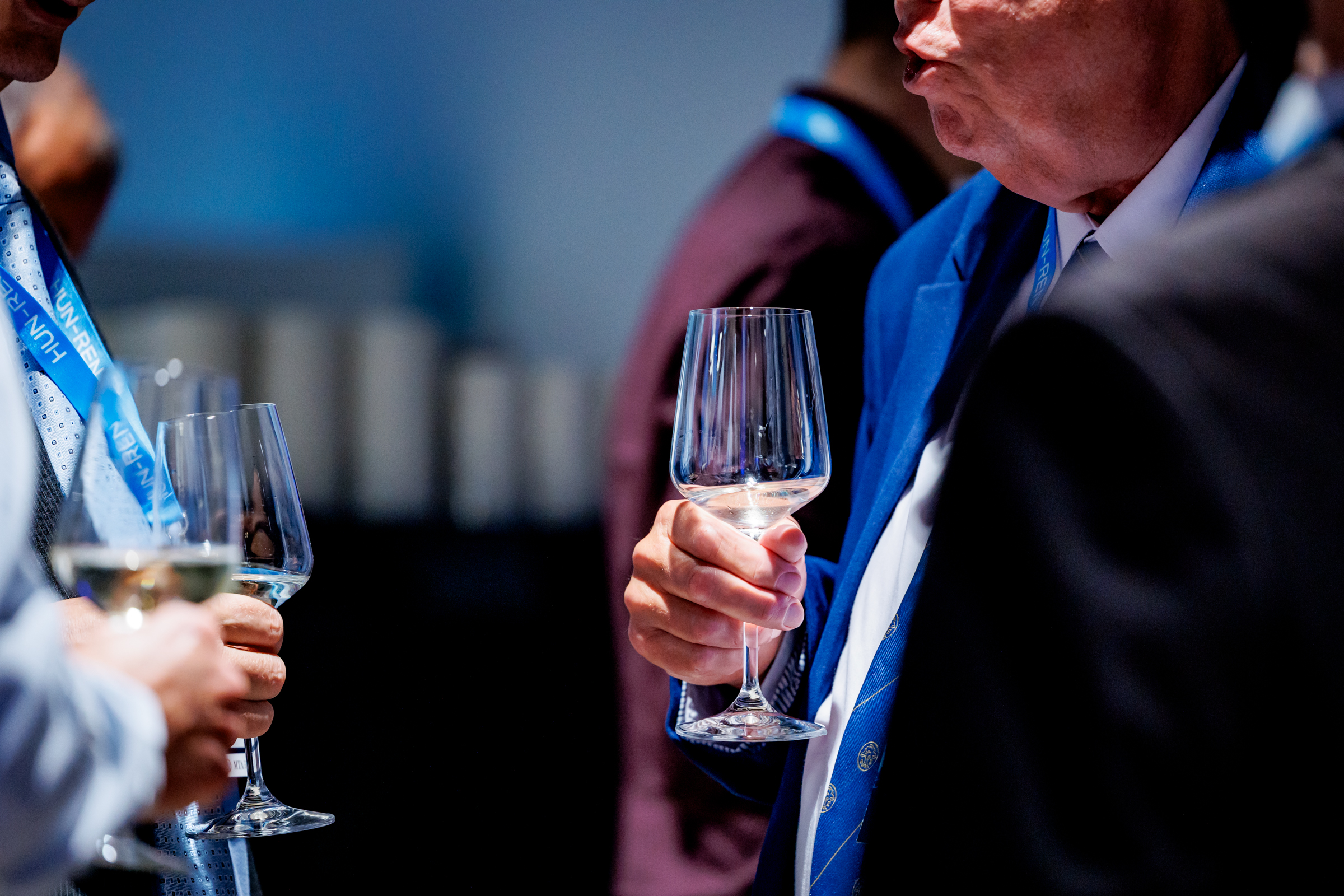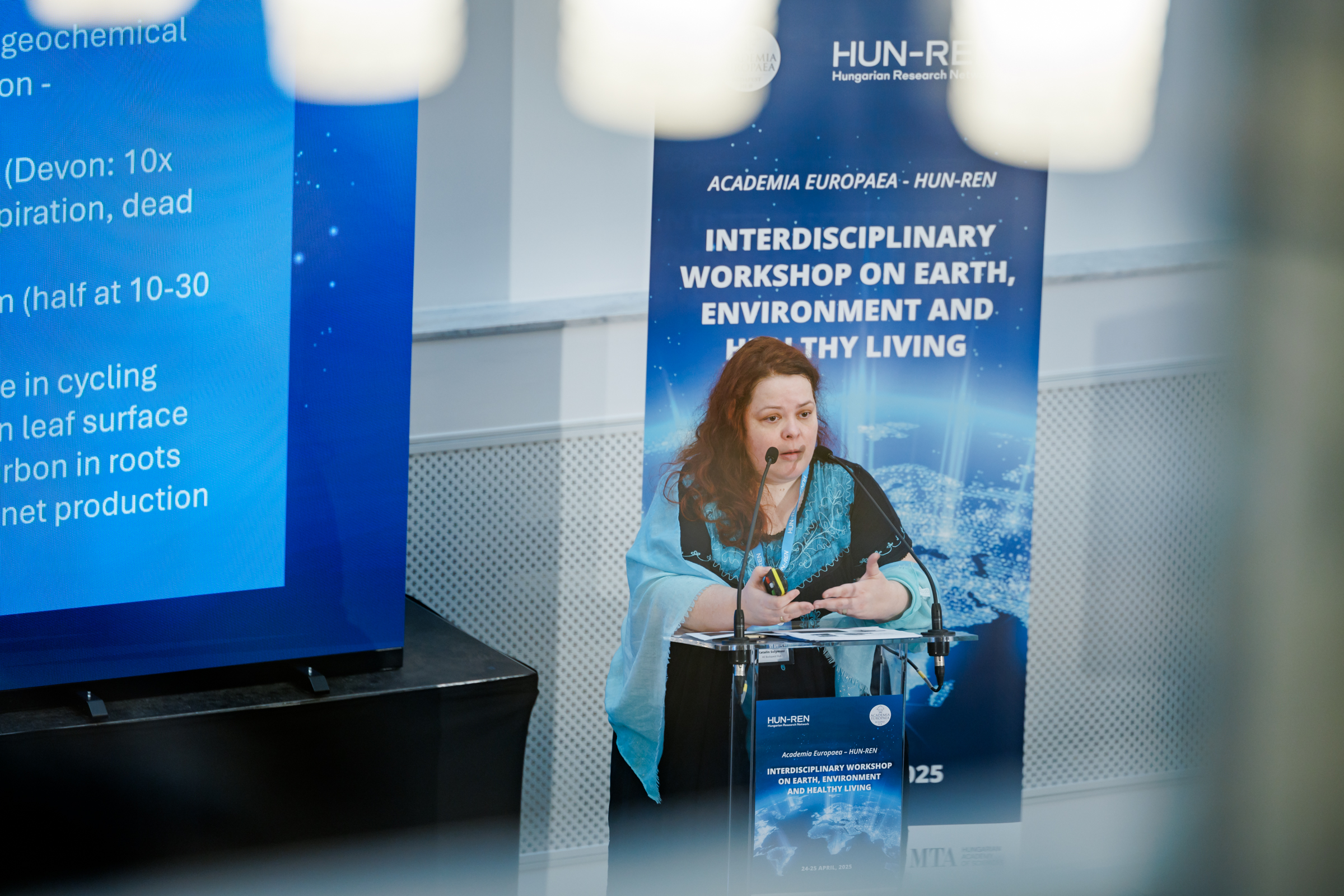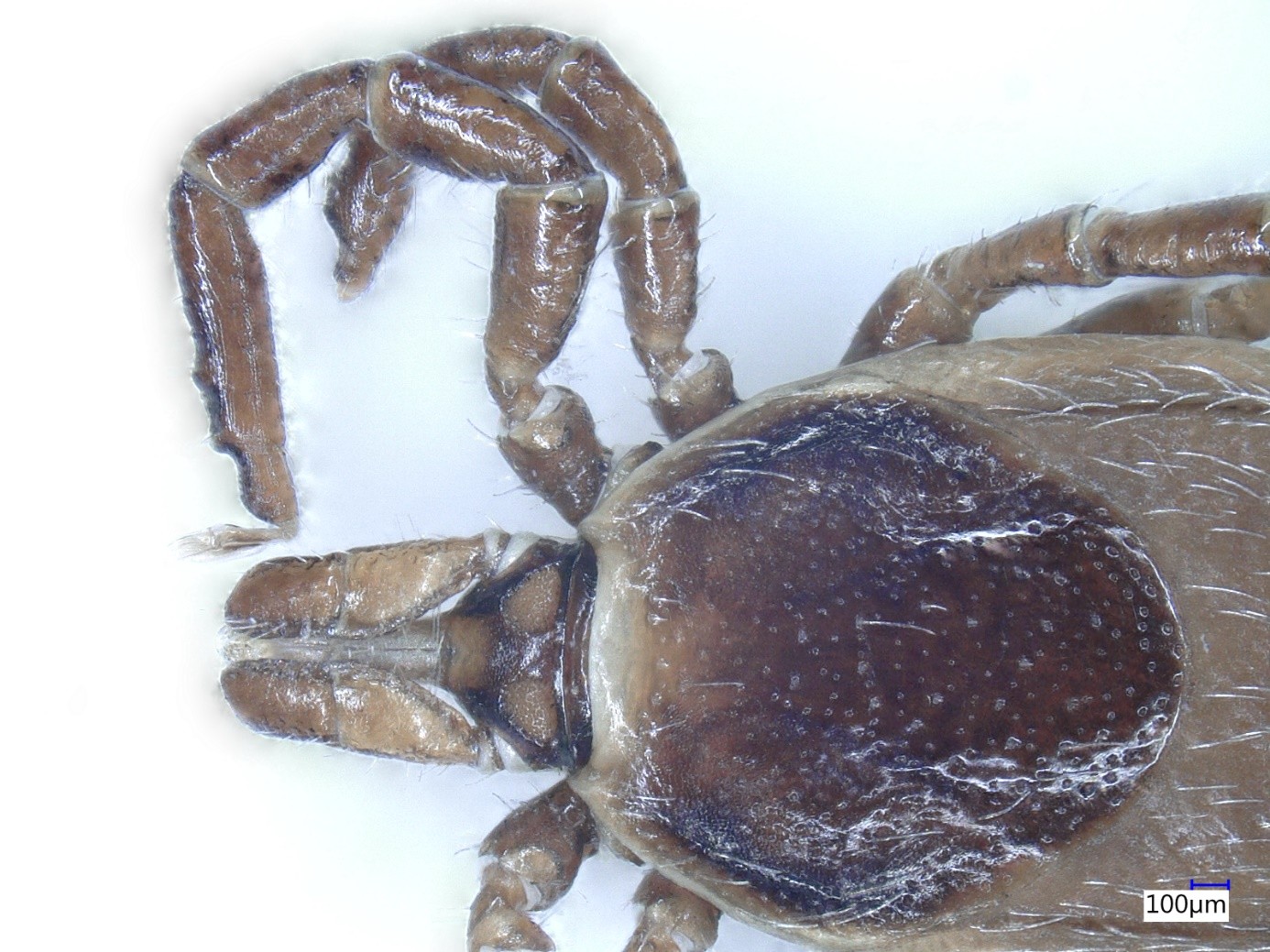International Experts Discussed the Future of Our Planet at the HUN-REN and Academia Europaea Conference
The HUN-REN Hungarian Research Network and Academia Europaea held their first joint international scientific conference on April 24–25 in Budapest. The event focused on exploring the links between the functioning of Earth's systems and human health
The aim of the conference was to strengthen interdisciplinary dialogue between the earth sciences, environmental sciences, and life sciences, while also providing a platform to promote exploratory research, innovation, and scientific approaches to societal challenges. The thematic sessions of the two-day event addressed a wide range of key issues, from climate change and sustainable energy management to public health - with particular attention to the connections affecting the sustainable future of the Danube Basin.
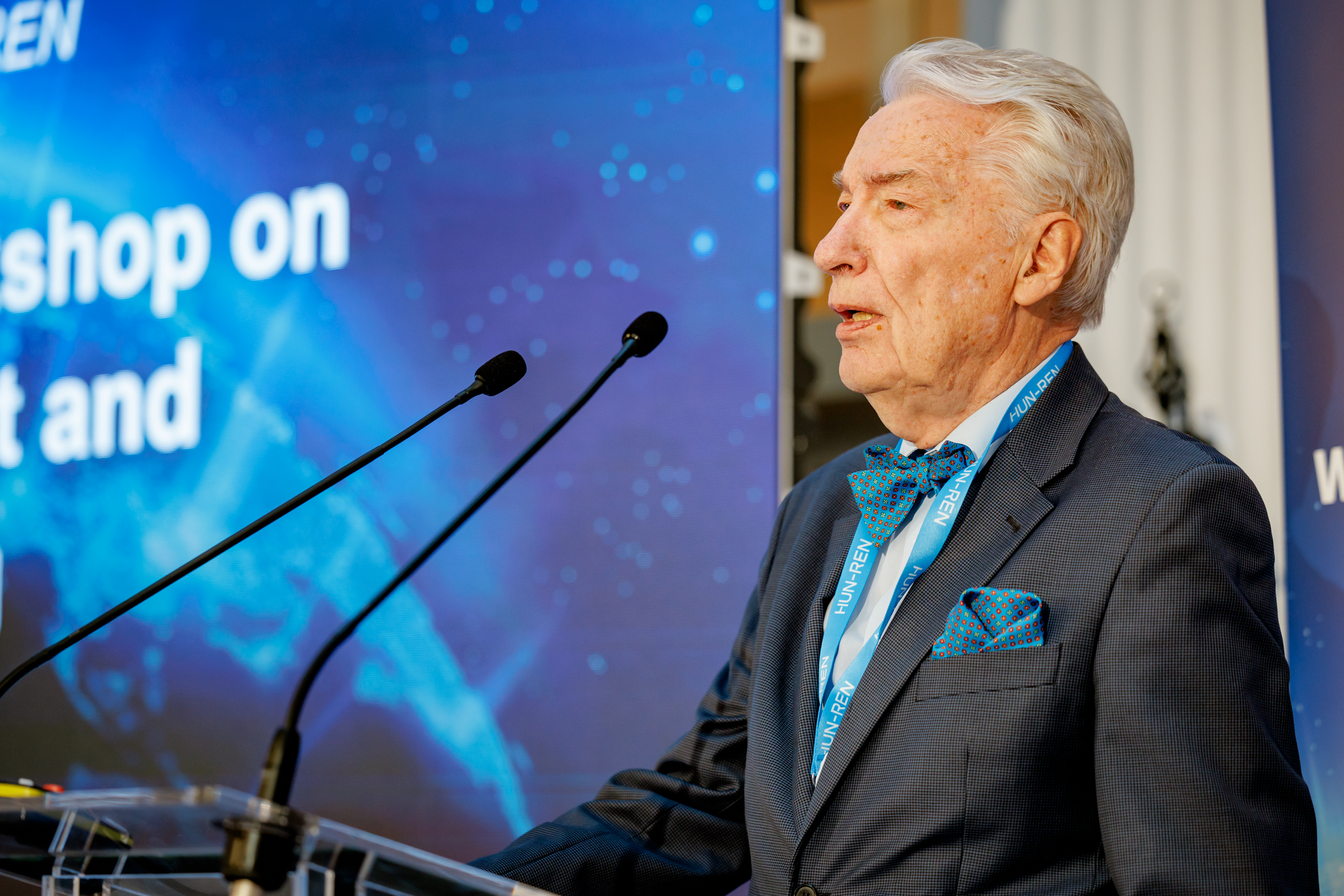
Photo: DKP Visual Kft.
"This meeting is very important for exchanging opinions, discussing global challenges, and engaging in meaningful dialogue. I am deeply convinced that science has the potential to change the world — and to make people happier." - said Szilvester E. Vizy, head of the HUN-REN President’s Circle, at the opening of the two-day event, which also marked a milestone for the research network, as it was its first event since joining the supporting members of Academia Europaea. The head of the HUN-REN President’s Circle emphasized that, alongside the global themes of the conference, mental well-being should also be a key priority. "Our everyday activities affect health and well-being across Europe. The pollution we generate critically impacts our health and life expectancy." In his closing remarks, Professor E. Vizi quoted Nobel Prize laureate Dénes Gábor, reinforcing his message: "The future cannot be predicted. The future can be invented."
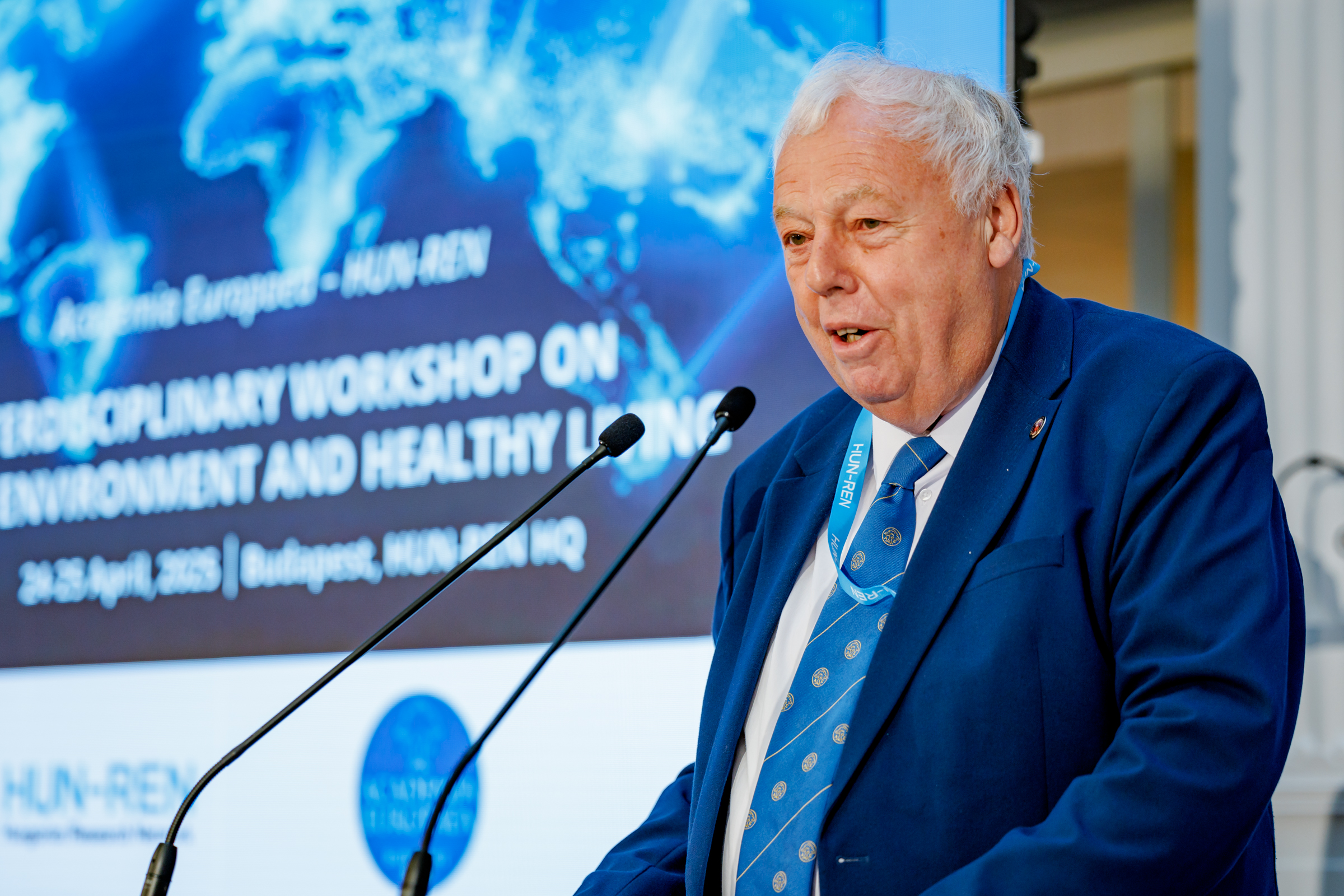
Photo: DKP Visual Kft.
The keynote speaker of the conference was Sierd Cloetingh, Chief Scientist at the HUN-REN Institute of Earth Physics and Space Science (HUN-REN EPSS) and the Utrecht University Distinguished Professor, who presented the societal significance of processes occurring at various levels of Earth's systems within the framework of the TOPO-EUROPE research program. As the moderator of the first day of the event, he expressed his delight at seeing representatives from a wide range of disciplines as well as from industry. He emphasized that such diversity is especially valuable in fostering a comprehensive understanding of — and response to — global challenges that transcend disciplinary boundaries.
Energy Management, Climate Change, and Health
Tom Beer, director of Australia's Safe System Solutions, gave a presentation on the connections between climate, wildfires, air quality, and health. He emphasized that severe wildfires in Australia, once predicted to occur by 2050, have become regular events since 2010. Despite this increasingly serious global issue, he remains hopeful: “I continue to be optimistic that science and technology - working together with society - will find solutions to the growing challenges of climate change.”
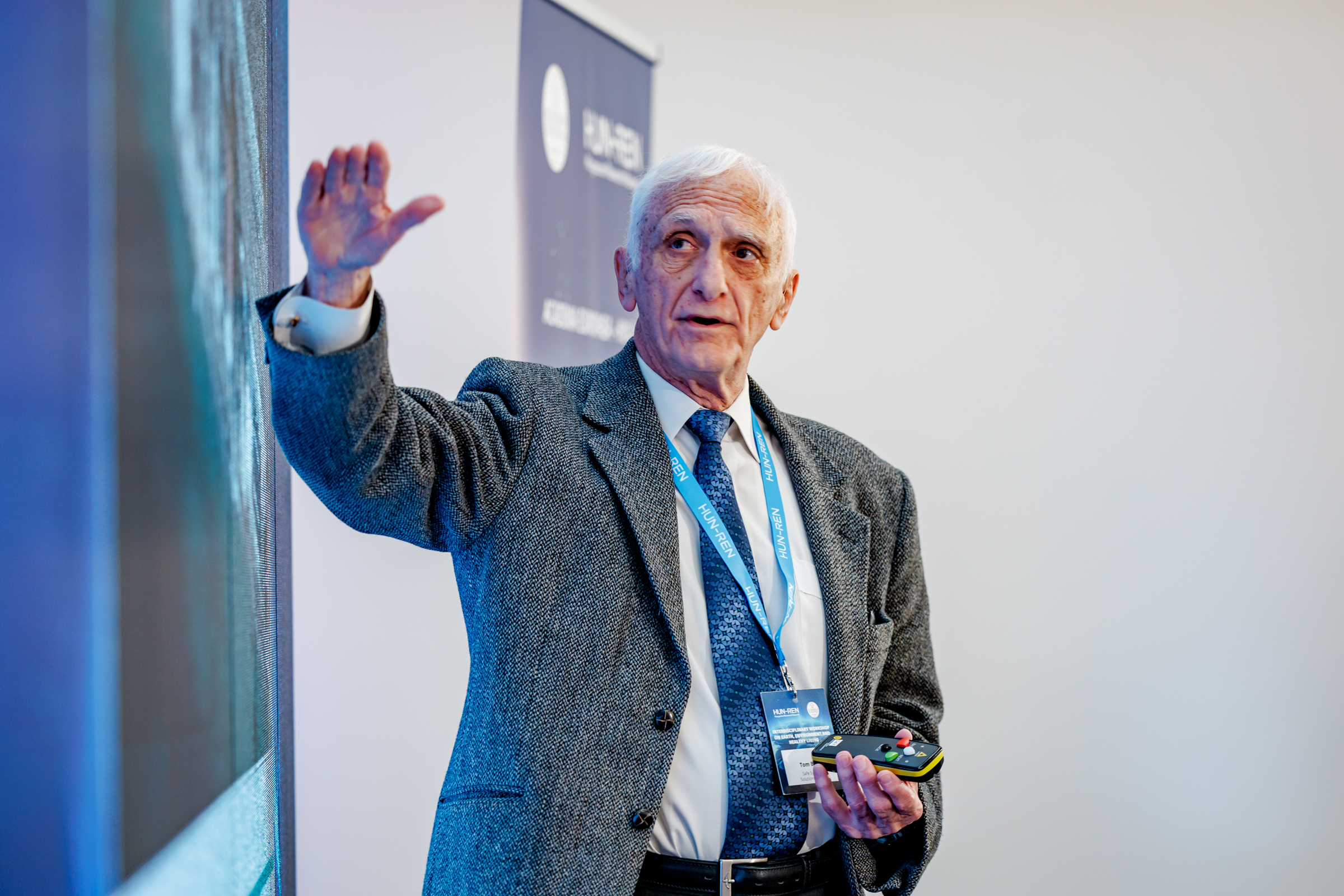
Fotó: DKP Visual Kft.
One of the conference sessions focused on the sustainable utilization of gases originating from deep within the Earth, including natural hydrogen and geothermal energy. Researchers agreed that these energy sources could become key components of the future energy mix, especially in the context of energy transition and the fight against climate change.
Other sessions examined the role of science in addressing global societal challenges - such as climate change and public health. Participants explored how scientific collaboration can promote sustainable development and how research findings can be effectively translated into practice. Detailed reports on the session speakers and presentations can be found here.
The lineup of speakers included Márta Berkesi, a researcher at HUN-REN FI, spoke of a understanding the origin, behaviour, and migration pathways of deep-seated gase, and Pietro Sternai, an associate professor at the University of Milan, who discussed the interactions between geology and climate. Katalin Solymosi, plant biologist at ELTE and deputy director of the organizing body Academia Europaea Budapest Knowledge Hub, presented the increasingly popular holistic approach known as the OneHealth concept. Balázs Gulyás, president of HUN-REN and a neurobiologist, reported on the latest research findings regarding cognitive compensation mechanisms.
"The great lesson of this symposium is that researchers in the 21st century need to think along the whole value chain and focus on the whole value chain when approaching scientific work to find solutions to global challenges", said the HUN-REN President in his closing remarks. Balázs Gulyás pointed out that HUN-REN is interested in the fastest possible use of scientific results in society and in the holistic approach of which this symposium was a good example. "Such interdisciplinary exchanges both build the next generation and serve the interests of society as a whole," added the President of HUN-REN.
